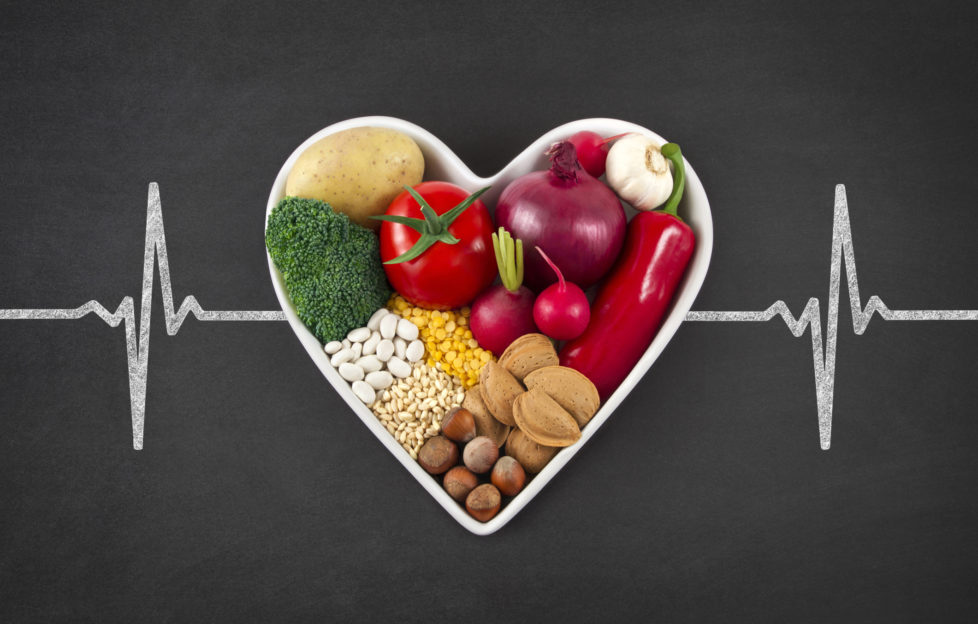Heart Of The Matter

February is National Heart Month and we’re all being urged to take better care of ours.
According to Public Health England and NHS England, we should all have our cholesterol and blood pressure numbers checked regularly, as these can flag up early signs of “hidden” problems, such as cardiovascular disease (CVD).
Further preventative measures include stopping smoking; maintaining a healthy weight; ensuring alcohol intake is at a safe level and that you eat healthily.
Nutritionist Lily Soutter has some top tips for ensuring your diet is heart healthy.
POLYPHENOLS
Whilst all fruit and veg contains an array of polyphenols, berries are unique in that they contain a high content of the polyphenol anthocyanin, which is thought to have heart protective effects.
Data gathered from the Nurses’ Health Study showed that women who consumed the highest amounts of blueberries and strawberries were 34% less likely to suffer from a heart attack than women who ate the least of these fruits.
Suggestions for shopping basket: Blueberries, blackberries, strawberries, raspberries.
VITAMIN E
Vitamin E is a fat-soluble antioxidant, which may help to prevent the development of atherosclerosis. It protects our harmful LDL cholesterol from damage and preventing its build up within blood vessel walls. Vitamin E rich foods can also help to minimise blood clots and may play a role in maintaining healthy blood pressure.
Suggestions for shopping basket: Nuts, seeds, olive oil and avocado.
HIGH FIBRE FOODS
As a population we currently only consume a shocking and average of 15-18g fibre per day, which is just half our recommended 30g per day!
If you’re suffering with high cholesterol then soluble fibre is just too important to go amiss. This special fibre binds to “bad” LDL cholesterol and bile acids in the digestive tract. This means that cholesterol is eliminated from the body rather than absorbed into the bloodstream. We all know that wholegrains are rich in fibre, but did you know that berries such as raspberries come with a whopping 7g fibre per 100g! Get your daily fibre dose by adding raspberries to your morning porridge, smoothies, desserts or even enjoy as a tasty snack.
Suggestions for shopping basket: Soluble fibre, oats, oat bran, selection of berries, beans, lentils, psyllium and flax seeds.
VITAMIN C
We all know that fruit and vegetables are good for us, and people who have a higher intake have been shown to have higher blood levels of vitamin C, which has been associated with a reduced risk of cardiovascular disease.
Suggestions for shopping basket: berries, particularly strawberries, as just 100g provide 100% of our recommended daily intake.
OILY FISH
All fish has been shown to support heart health, however oily fish is extra special as it’s a potent source of omega 3 fats. These healthy fats may help to protect heart and blood vessels from disease. The current government guidelines are to consume two portions of fish a week, one of which is oily.
Suggestions for shopping basket: oil fish such as salmon, trout, mackerel, sardines and herring.
POLY AND MONOUNSATURATED FATS
A diet high in saturated and trans fats can elevate our “bad” LDL cholesterol, which can increase our risk of heart disease. Replacing saturated fats with unsaturated fats can help to maintain levels of “good” HDL cholesterol and decrease levels of “bad” LDL-cholesterol.
Suggestions for shopping basket: Olive oil, nuts, seeds and avocado
HERBS AND SPICES
Did you now that the UK population is currently consuming close to 9g salt per day when the maximum recommended intake is only 6g? There’s no doubting that excess salt within the diet can cause high blood pressure, which increases the risk of stroke. Ditch the table salt and get experimenting in the kitchen with flavoursome herbs and spices instead!
Suggestions for shopping basket: turmeric, oregano, chilli flakes, cumin, ginger, cardamom, rosemary, thyme, parsley and dill.

Do You Know Your Numbers?
Duncan Selbie, chief executive of Public Health England, said: “We know our PIN numbers but not the numbers that save our lives.
“Thousands of heart attacks and strokes can be prevented by more people knowing their blood pressure and cholesterol numbers and by seeking help early.”
Over 5 million people are currently living with high blood pressure undiagnosed in England alone. By 2029, PHE and NHS England want:
To detect and treat millions more people living with high blood pressure who are currently undiagnosed; currently, just over half (57%) of those with high blood pressure have been detected (6.8 million people) – the ambition is to increase this to 4 in 5 people (80%)
To ensure three quarters (75%) of 40- to 74-year-olds have received a formal CVD risk check and have had their cholesterol levels recorded; currently fewer than half (49%) of those eligible for a formal check have received one (7.6 million people)
To increase from 35% to 45% the proportion of 40 to 74 year olds at high risk of developing CVD who are treated with statins
You can find out more at:
https://www.gov.uk/government/news/ambitions-set-to-address-major-causes-of-cardiovascular-disease







